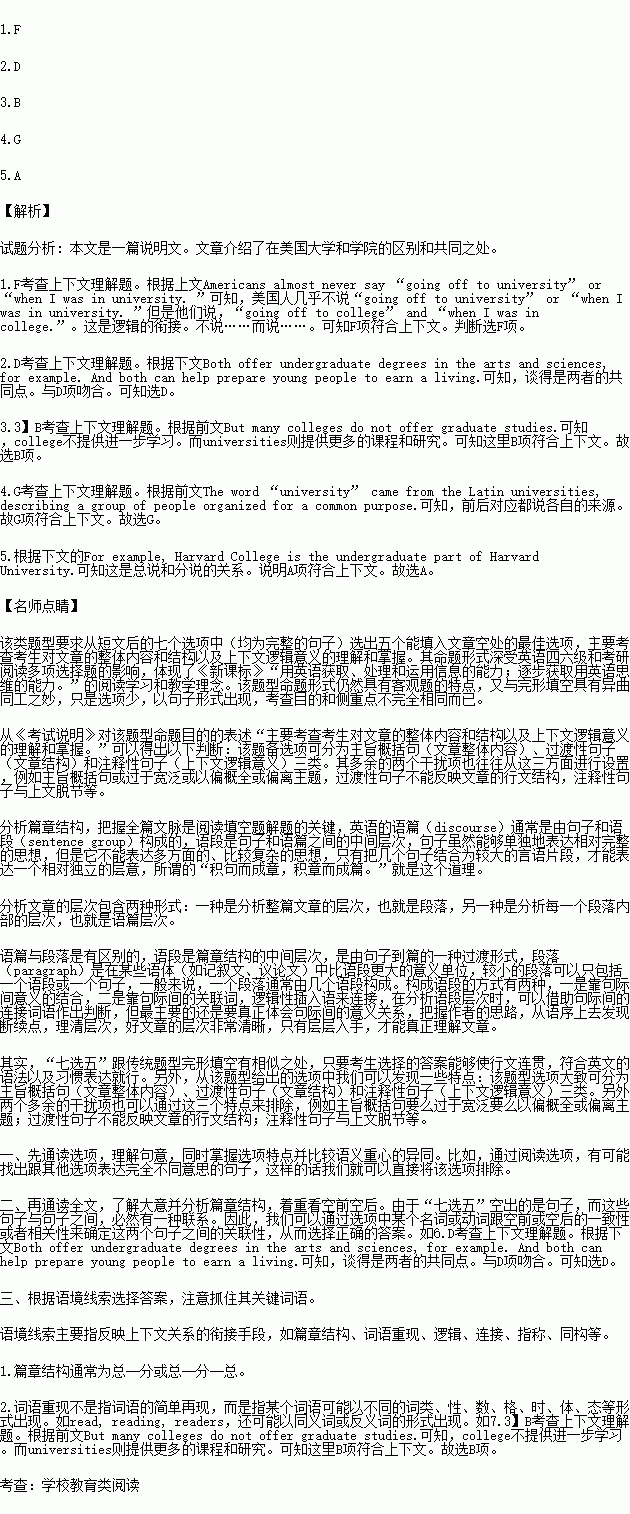题目内容
根据短文内容,从短文后的选项中选出能填入空白处的最佳选项,选项中有两项为多余选项。(选 E 涂AB, 选 F 涂CD,选G涂AC)
Americans use the term “college students” to mean students either in colleges or universities. Not only that, Americans almost never say “going off to university” or “when I was in university.” That sounds British. 1.
2. Both offer undergraduate degrees in the arts and sciences, for example. And both can help prepare young people to earn a living.
But many colleges do not offer graduate studies. Another difference is that universities are generally bigger. 3.
Another place of higher education, especially in technical areas, is an institute, like the Massachusetts Institute of Technology. Yet even an institute of technology can offer a wide choice of programs and activities.
Modern universities developed from those of Europe in the Middle Ages. The word “university” came from the Latin universities, describing a group of people organized for a common purpose. 4. In England, colleges were formed to provide students with places to live. Usually each group was studying the same thing. So college came to mean an area of study.
The first American universities divided their studies into a number of areas and called each one a college. This is still true. 5. For example, Harvard College is the undergraduate part of Harvard University.
A. A college can also be a part of a university.
B. They offer more programs and do more research.
C. There are more universities than colleges in the USA.
D. Colleges and universities have many things in common.
E. Universities and colleges offer students different opportunities.
F. Instead, they say “going off to college” or “when I was in college.”
G. “College” came from collegium, a Latin word with a similar meaning.

